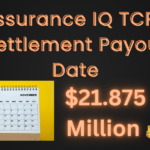Nowadays, Handling a large number of assets is a big problem in the most prominent countries like the United States, United Kingdom, Canada, Japan, and China in the world. Assets holders want to know about the living commonly known as a revocable trust and its process. The main common question about revocable trust that often individuals ask is that Can you set up a trust without an attorney? To get an answer to this question read the below article.
Can you set up a trust without an Attorney?
A living trust is a legal document that provides you control of your estate plan in your life by offering a means to safely and privately transfer property to your selected individual after your death. You can select a trustee who can control the trust and transfer the trust assets to the person you select. The assets in a trust are free from probate. A living trust is also known as a revocable living trust, it means that Individuals can change the trust or trustee name at any time, revoke it, or make changes to it.
All Americans who don’t like to establish a will but they like a revocable living trust want to know if Can they set up a trust without an attorney? In short, If an individual wants to set up a trust without an attorney then he can do it himself easily. There is no need for an attorney to create a trust. But based on your conditions, you can get legal guidance from an experienced estate attorney to make it clear whether your trust carries the proper information or not and whether your trust provides safeguards for your loved one’s future.
What can you put in a Trust?
First, you need to make a final decision whether you want to take part in trust or not. Secondly, you need to select assets that will be put into the trust. You can put any type of assets into trusts. Some of the eligible properties or assets are listed below.
- Real estate property
- Financial assets
- Business interests
- Business ownership
- Cryptocurrency
- Mutual funds
- Expensive or Valuable things like jewelry or artwork
- Stocks
- Bonds
- Insurance policies
To put your assets in the trust, you must change the legal ownership of those assets from your name to the selected trustee whereas, for financial or bank accounts, individuals need to transfer the ownership to the trust.
How can you set up a living trust without an attorney?
- Navigate to such websites that can provide living trust facilities like https://www.legalzoom.com/articles/do-it-yourself-living-trust.
- Select the type of trust and trust filing status like single or couple.
- Enter details about you and your assets details that you want to put in trust like your name, number of assets, assets location, current market value, phone number, email address, residential address, etc.
- Enter the details about the trustee and successor trustee like name, address, relation with you, email address, phone number, etc.
- Attach all the required documents like proof of assets.
- Review your all entered details about trust and then put your signature in front of any eyewitnesses.
- After submitting your trust application, verify that your assets transferred to the trustee.
What happens to the assets in a revocable trust after your death?
When an individual takes a part in living trust then it is very important for them to know about what will happen with their revocable or living trust after their death. After a person’s death, the assets in a revocable or living trust are distributed according to the terms that he set in the trust form or document. After an individual’s death, the living trust automatically becomes irrevocable; it means that no further changes can be applicable to it. This condition will be applied to all the trust documents.
The name that a person out into the successor trustee session of the trust document will step in to manage the trust assets. This person is responsible for following the instructions the dead persons previously highlighted in the trust. Only the successor trustee can distribute the assets to those persons whose names you put in your trust document. The distribution process of assets will be done according to the time limit that you mentioned in the trust document.
The main benefit of those assets that you put in the trust is that there is no need to go through probate which can expedite the trust assets distribution process. It can also keep dead individuals’ estate distribution matters private. If you set up a trust for minor children or people who need professional assistance then in this case the trustee must continue to manage the assets according to the trust document listed instructions.
Revocable Trust Advantages
A revocable trust normally known as a living trust provides various advantages that can make it the best or initial choice for individuals who want to manage their estate.
- Avoids Probate: The major benefit of the living trust is that assets in it don’t need to go through a probate which may be a longer and more expensive process.
- Flexible: A revocable trust can be altered or revoked entirely or partially during any phase of your lifetime because this revocable trust provides you the flexibility to adjust your trust according to your will.
- Privacy: As we know a will becomes a public record after probate whereas a revocable trust remains private. It means that details of your assets and their distribution are not disclosed to anyone.
- Continuity of Management: If you become incapacitated then in this case the successor trustee whose name you put in the trust document can manage or distribute the trust assets according to your trust document listed wish without court intervention.
- Control Over Distribution: You can specify how and when your assets are distributed to your beneficiaries, which can be particularly useful if you have young children or beneficiaries who may not be ready to manage large sums of money.
Revocable Trust Disadvantages
Everything in this world that has some advantages must have some disadvantages. Like others, revocable trusts offer many benefits with some disadvantages. The disadvantages of a living trust are listed below.
- No Tax Benefits: The living trusts cannot offer you any tax advantages during your lifetime. All the assets in the trust are considered part of your property for tax purposes.
- Cost: The setting or maintenance process of a revocable or living trust can be more costly than creating a will.
- Complexity: The Managing process of a revocable trust may be more complex than a will. Individuals need to transfer all their assets into the trust which can be a time-consuming process and needs ongoing management.
- No Creditor Protection: Assets in a revocable trust will not be protected from creditors. Since you get control over the trust, creditors can reach trust document listed assets to satisfy debts.
- Administrative Burden: The living trust puts an administrative burden on you in which you need to manage the trust like transferring assets regularly into it and keeping records. This can be burdensome for you especially if you have a large number of assets.
- Potential for Disputes: If a person cannot properly manage a living trust then it can lead to disputes among beneficiaries especially when the terms of a living trust are unclear or if you make changes frequently.










